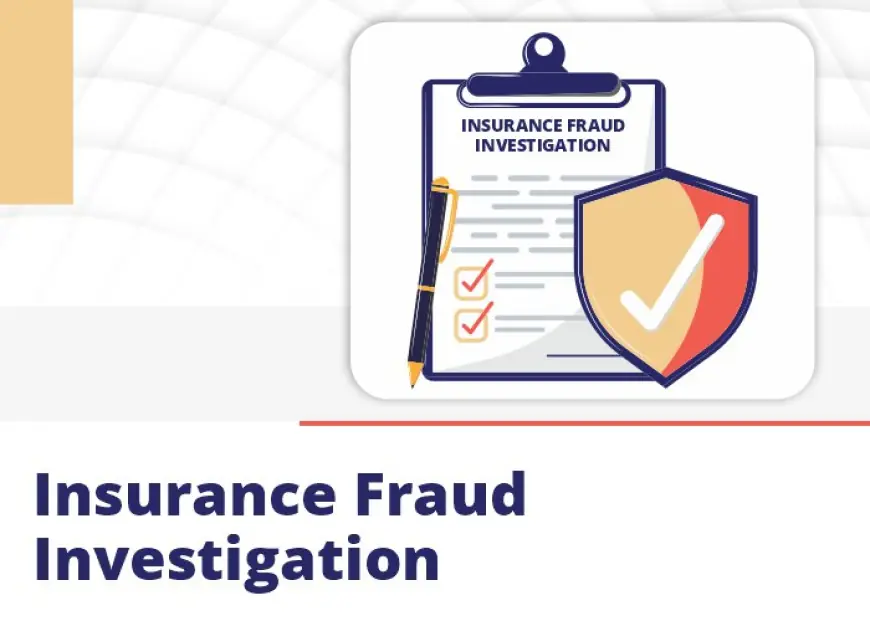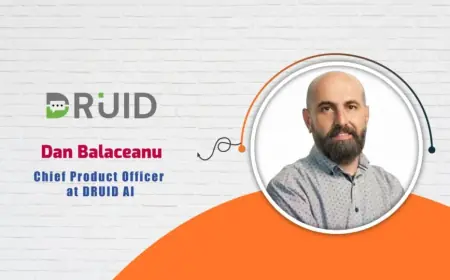Insurance Fraud Investigation Course: Exposing Deceptive Practices
Master the skills to uncover insurance fraud. Join our comprehensive Insurance Fraud Investigation Course and learn detection techniques and legal processes.

Insurance fraud is common globally which is costing industries around the globe billions of dollars yearly. False claims not only impose a direct cost on insurers but also impose a cost on all other policyholders who end up paying a part or all of it. An insurance fraud investigation course enables a person to recognize, interpret, and avoid insurance fraud while learning how to counter fraudulent actions.
What do you understand about Insurance Fraud Investigation?
Insurance fraud investigation is the examination that has the aim to establish deception in insurance claims. This process encompasses collecting facts, witnesses and creating data to check out the credibility of the cases. These insurance fraud investigators expose fraud and fake physical injuries to ensure companies stop losing money through fake accidents.
Why Study Insurance Fraud Investigation?
Rising Cases of Fraud
As the tactics used in fraudulent transactions advance in their complexity, the need for efficient investigators rises.
Protecting the Industry
To sum it up, there is the notion that fraudulently claimed costs insurance service providers and their customers in the process. In other words, fraud is investigated so that the integrity of the industry may be preserved and financial losses minimized.
Promising Job Placement
Insurance fraud investigation provides vivid career opportunities, including insurance companies, private companies and agencies, and so on.
What Does an Insurance Fraud Investigation Course Offer?
Such a course gives the student theoretical background along with practical experience needed to detect fraud. Here are the key areas of focus:
1. Specific Insurance Policies
● Familiarization with different types of insurance: health and automobile, property and life.
● The exemptions that have been found to be used by the fraudsters.
● Scrutiny of Policy Terms such that disparities can be identified.
2. Fraud Detection Techniques
Red Flags: The awareness of various; indicators of fraudulent activities in claims.
Data Analysis: Employing the technological features to analyze the usage pattern and the deviation made by the user.
Behavioral Analysis: On the identification of deceit with respect to the claimant’s behavior and communication.
3. Investigation Methodology
Evidence Collection: Article collections as well as other documents or photographs and other materials that may be deemed as relevant.
Interviews and Surveillance: Interviewing those who make claims and having surveillance to confirm the same.
Case Documentation: Creating drafts of comprehensive and polished reports to present findings most excellently.
4. Legal and Ethical Framework
● What measures a candidate has in place to comprehend legal requirements concerning insurance fraud investigation.
● Staying true to the guidelines to avoiding the usage of information that can violate the privacy of people and to avoid bias.
● On the care and protection of evidence to allow its use in court.
5. Advanced Tools and Technology
● Exploiting technologies to investigate computer related activities.
● The importance of using AI and machine learning for fraud detection.
● Use of geolocation tools to support its findings.
Who should take an Insurance Fraud Investigation Course?
This course is ideal for:
Insurance Professionals: Insurance professionals, especially claims adjusters, underwriters, and risk managers in search of ways to enrich their investigation abilities.
Private Investigators: The fourth type of case accepted in the office is the insurance fraud cases.
Law Enforcement Officers: Fraud as a subset of financial crimes.
Forensic Accountants: Wanting to detect schemes in fraudulent financial transactions.
Students and Enthusiasts: Choosing the path of a fraud investigator.
Skills You’ll Gain
Analytical Thinking
Be able to dissect data and evidence in order to uncover fraud which may not be so apparent to the ordinary eye.
Investigative Techniques
Develop the mastery in surveillance, interviewing and documentation process for detailed investigation.
Knowledge of Legal Processes
Acquaint yourself with the legal provisions of the state for insurance fraud and handling of evidence.
Use of Insurance Fraud Investigation
Several types of insurance frauds span across different domains and these investigations help combat frauds in these domains like:
Health Insurance
Able to identify fake claims that future treatments or procedures never received.
Auto Insurance
Employed in the examination of fabricated traffic accidents, over exaggerated or entirely fake damages, or stolen items.
Property Insurance
Finding fake documents concerning fire, theft or natural disasters.
Life Insurance
Identifying a case of fraud in an attempt of faked death of an individual or a false beneficiary claim.
Insurance Fraud Investigations’ Future Trends
Use of advanced technologies is going to define the future of fraud investigation. Machine learning and artificial intelligence have introduced ways on how high-risk allegations are appropriately identified in a short span of time. Blockchain is also on its way to offering protection for policyholder information and minimizing situations that might present possibilities of frauds.
Moreover, due to the constantly increasing number of fake documents, forged emails and other types of electronic frauds the aim and scope of digital forensics is broader now. It is hence important that learners have their finger on the pulse in regards to these advances.
Conclusion
An insurance fraud investigation course educates people to combat the adversarial phenomena with precision and professionalism. Thus, using a specific set of technical and critical skills and ethical understanding you would be able to contribute to safeguarding the insurance field as well as act justice.
Become an expert in detecting fraud, protecting organizations, and helping others make a difference in a constantly changing world: enroll in this course. Each case takes you nearer to get the result and ensure that public confidence in insurance is preserved.
What's Your Reaction?
 Like
0
Like
0
 Dislike
0
Dislike
0
 Love
0
Love
0
 Funny
0
Funny
0
 Angry
0
Angry
0
 Sad
0
Sad
0
 Wow
0
Wow
0




















































